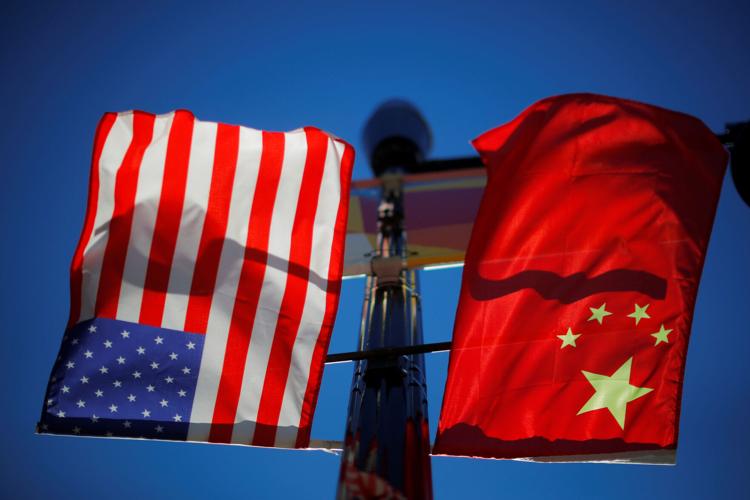(Reuters) — President Joe Biden is expected to issue his long-awaited executive order to screen outbound investments in sensitive technologies to China early next week, according to people familiar with the matter.
A White House spokesman declined to comment.
The goal of the order is to prevent U.S. capital and expertise from accelerating the development of technologies that would support China's military modernization and threaten U.S. national security.
The order is expected to target U.S. private equity, venture capital and joint venture investments in China in semiconductors, quantum computing and artificial intelligence. Most investments captured by the order will require that the government be notified about them. Some transactions will be prohibited, sources have said.
"It fills a gap in our current regime," said Cordell Hull, a former U.S. Commerce Department official. "We have prohibitions on exporting the technology. We have restrictions on in-bound investment. This will help to plug that gap on funding and know-how and give the government visibility into these capital flows."
The regulations are not expected to take effect right away and the administration will solicit comment on its proposals. It has already conducted meetings with stakeholders and has been consulting with allies.
The topic also came up last month during U.S Treasury Secretary Janet Yellen's meetings with Chinese officials.
In a briefing with reporters at the end of her trip, Yellen said the potential restrictions were "highly targeted, and clearly directed, narrowly, at a few sectors where we have specific national security concerns."
She said the order would be enacted in a transparent way, through a rule-making process that would allow public input.
Asked about the expected order, Liu Pengyu, a spokesman for the Chinese embassy in Washington, said the United States "habitually politicizes technology and trade issues and uses them as a tool and weapon in the name of national security."
China will follow developments and firmly safeguard its rights and interests, he said.
Laura Black, a former policy director for the Committee on Foreign Investment in the United States (CFIUS), which reviews certain transactions in the U.S., said the order was not expected to establish a "reverse CFIUS," because it would not involve a case-by-case review where a committee would clear, mitigate or block a transaction. However, it is expected to prohibit certain investments, she said.
Two sources said briefings were expected on Monday, with the announcement Tuesday. But the timing has moved many times before and could again.
Sources have told Reuters the investments that will be restricted are expected to track export control rules for China issued by the U.S. Department of Commerce in October.
Emily Kilcrease, a former U.S. official who has worked on China investment policy, said the U.S. also has been trying to define what counts as artificial intelligence, and aiming to also control offshore investments by U.S. people and companies.
She described the order as a major step in setting up a U.S. system of oversight to screen transactions to countries of concern and said that it was expected to expand in time.
She also said the U.S. should be prepared for retaliation by China. "We should anticipate that," she said.
A separate amendment on outbound investment in a pending defense policy bill passed the U.S. Senate last week. That potential legislation requires notification of certain outbound investments, but contains no prohibitions.
"I have long urged the Biden Administration to take executive action to screen investments in national security sectors made in countries of concern, like the People's Republic of China," Sen. Bob Casey, who co-led the amendment, said in a statement on Friday. He said the order would be bolstered by the amendment, the Outbound Investment Transparency Act.

















